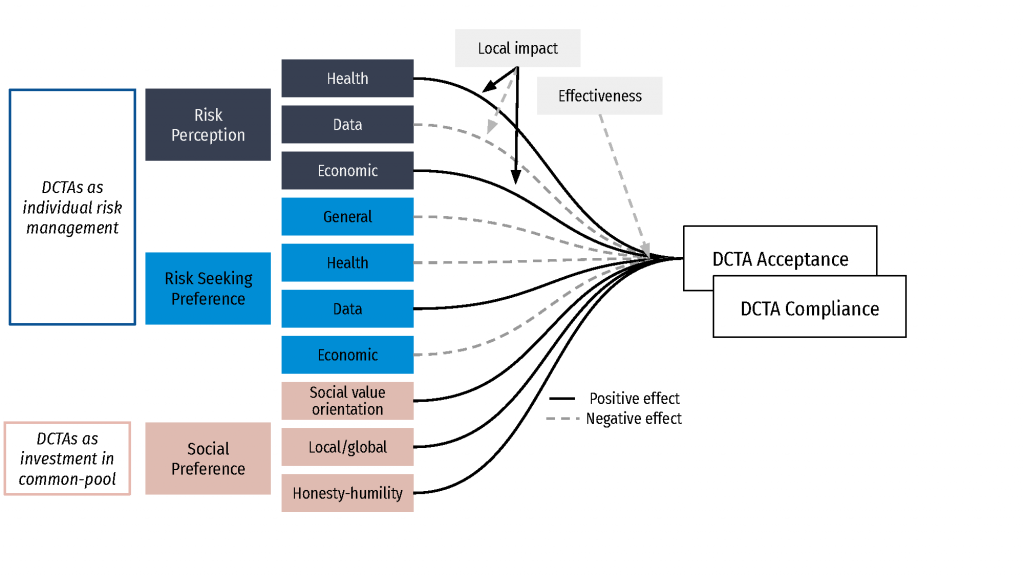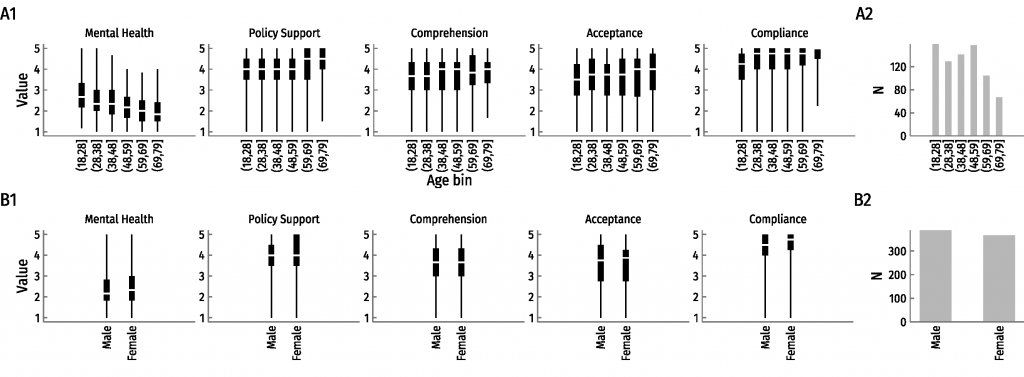Topic
Digital health
Digital devices from sensors to mobile applications are becoming increasingly important in disease prevention and diagnostics
Setup
Design
R, Stan
Realized in R-Statistics, RStan (brms), JavaScript, and Qualtrics, representative sampling via LINK
Predicting the Use of Digital Health Devices during Covid-19
In 2020, we investigated the acceptance of digital health applications against Covid-19.
We modeled the acceptance of digital health tracking applications (SwissCovid) at the time when vaccines were still unavailable, collecting novel evidence from a large, Swiss-representative sample of the infected and non-infected population. The challenge in this project consisted in tackling the variable selection in a new domain such as digital health. I addressed it using a Bayesian state-of-the-art feature selection method called projective predictive variable selection and Bayesian linear models. This allowed us to answer when and why people accept digital health applications during Covid-19.
Find the code on GitHub. You can read the press release and the scientific paper in Nature Humanities & Social Science Communications.








